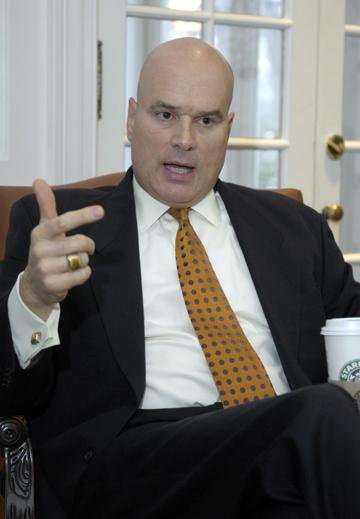CONGRESS and President Obama have pushed through a relatively modest stopgap measure to avoid the “fiscal cliff,” but over the coming years, the United States will confront another huge cliff: Social Security.
In the first presidential debate, Mr. Obama described Social Security as “structurally sound,” and Mitt Romney said that “neither the president nor I are proposing any changes” to the program. It was a rare issue on which both men agreed — and both were utterly wrong.
For the first time in more than a quarter-century, Social Security ran a deficit in 2010: It spent $49 billion dollars more in benefits than it received in revenues, and drew from its trust funds to cover the shortfall. Those funds — a $2.7 trillion buffer built in anticipation of retiring baby boomers — will be exhausted by 2033, the government currently projects.
Those facts are widely known. What’s not is that the Social Security Administration
underestimates how long Americans will live and how much the trust funds will need to pay out — to the tune of $800 billion by 2031, more than the current annual defense budget — and that the trust funds will run out, if nothing is done, two years earlier than the government has predicted.
We reached these conclusions, and presented them in an article in the journal Demography,
after finding that the government’s methods for forecasting Americans’ longevity were outdated and omitted crucial health and demographic factors. Historic declines in smoking and improvements in the prevention and treatment of cardiovascular disease are adding years of life that the government hasn’t accounted for. (
While obesity has rapidly increased, it is not likely, at this point, to offset these public health and medical successes.) More retirees will receive benefits for longer than predicted, supported by the payroll taxes of relatively fewer working adults than projected.
Remarkably, since
Social Security was created in 1935, the government’s forecasting methods have barely changed, even as a revolution in big data and statistics has transformed everything from baseball to retailing.
This omission can be explained by the fact that the Office of the Chief Actuary, the branch of the Social Security Administration that is responsible for the forecasts, is almost exclusively composed of, well, actuaries — without any serious representation of statisticians or social science methodologists. While these actuaries are highly responsible and careful and do excellent work curating and describing the data that go into the forecasts, their job is not to make statistical predictions. Yet the agency badly needs such expertise.
With considerable help from the actuaries and other officials at the Social Security Administration, we unearthed how the agency makes
mortality forecasts and uses them to predict the program’s solvency. We learned that the
methods are antiquated, subjective and needlessly complicated — and, as a result, are prone to error and to potential interference from political appointees. This may explain why the agency’s forecasts have, at times, changed significantly from year to year, even when there was little change in the underlying data.
We have made our methods, calculations and software available online at j.mp/SSecurity so that others can replicate or improve our forecasts. The implications of our findings go beyond social science. As the wave of retirement by the baby boomers continues, doing nothing to shore up Social Security’s solvency is irresponsible. If the amount of money coming in through payroll taxes does not increase and if the amount of money going out as benefits remains the same, the trust funds will become insolvent less than 20 years from now.
To save Social Security, which has lifted generations of elderly people out of poverty, tough choices have to be made. One option is to continue raising the retirement age, perhaps to as high as 69 or 70. While the full retirement age is gradually increasing to 67 (for people born in 1960 or later) from 65, this increase is not enough to counterbalance the gains in longevity.
A second option is to increase payroll taxes, for example by taxing wages over $113,700, the current earnings limit. A third is to limit the annual cost-of-living adjustments, possibly by changing how those adjustments are calculated. A fourth is to reduce benefits — for example, by lowering the initial benefits for workers whose lifetime wages are above the national average (currently $43,000 a year). Other choices, in numerous combinations, are possible, too.
One factor that might be considered is new research suggesting that retirement itself, although popular, may reduce life expectancy by breaking lifelong routines and disrupting deep social connections. One might question how much government policy should actively encourage retirement, as opposed to merely making it an option.
Americans need to discuss these difficult choices — and the Social Security Administration needs the ability to improve its forecasting technology by adding statisticians and social science methodologists to help its actuaries institute more formalized quantitative and statistical procedures.
Perhaps the government just feels that people will die off anyways. I believe that people as a whole, on average, will live longer because we vaccinate against things that used to kill people like Tuburculosis, Polio, Mumps, Measles, Rubella, Smallpox, etc.
However, the combination of breathing in all these toxins, eating all this genetically modified, subsidized frankenfood experiments that we call "fast food" will eventually kill people.
I think there will be more cancer than has ever been seen in the future. Still, we are provided this data stating that: as a whole, we live longer, but I don't think that's the whole truth to the story.
I don't think it's ever just one thing that kills you, unless you worked with lead or aesbestos or something toxic your whole life, it's usually a case of multiple factors combining for a cumulative effect we call disease.
I just think as a whole, people in our society are very prone to making multiple detrimental decisions that become behavioral patterns.
My teacher used to have a sign:
A thought > thought patterns > Actions > Action Patterns > Thoughts, Action Patterns become > Habits, Habits become your character or
what you continually do and your character and the decisions you make > ultimately becomes your destiny, or fate.
So I think we just make too many health errors primarily because we are ignorant of the truth, undisciplined, or a combination of both. Fast food is delicious, it's cheap, and it's most importantly
very easy and readily available, affordable and marketed to us to the death. Bah bah dah dap bap im loving it. No I'm fucking hating it, and if you play it again, I might take a club to my television or radio.
We don't do enough pro-active shit. You've all sat and watched that informercial for the power juicer, don't lie you bastard you'd slug down a glass of that shit, you're probably just too lazy to cut up the fruit.
If you drank that juice every day, did that P90X or Insanity workout..... read books, occupied the body and mind...... odds are, you'd be a lot healthier. Get 4,5,6 of those good habits under your belt, and you'll be one healthy mother fucker. It's really not complicated, it really isn't.
Anyways, should we pay our fucking taxes and work til 70? Fuck that, the old saying is "no taxation without representation" and I know I'm probably not using it in the correct light, but
Do you really feel represented by these assholes in Washington?
These people don't know shit! Yet they want me to work til I'm 70, pay assloads of taxes, and I'm probably not even going to collect social security? Fuck them. But it's a free society! and McDonalds commercials ring 50 times in the background as I'm typing this. Alcohol, spirits and sex are sold on television but Frank Reynolds can't smoke marijuana in the privacy of his own home because he's got arthritis in his soul from working his ass off his whole life?
Yet they advertise experimental drugs that people have died being Guinea pigs from? Side effects include death? How you about to throw that so casually in there?
"If you or a loved one died, or experienced cerebral hemorrhaging from taking __________ call Elk and Elk, serious lawyers for serious injury.
Fuck that! I'm calling Tim Misny and he's gonna put the Hammer Driver to your fucking skull and
make you pay!






